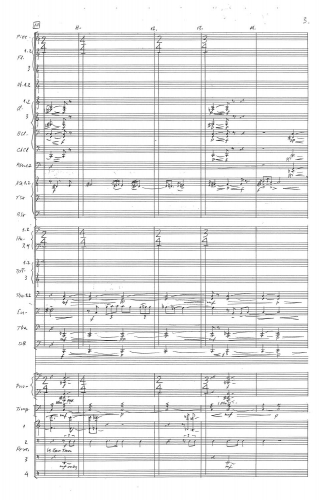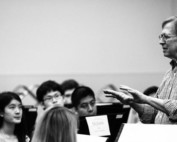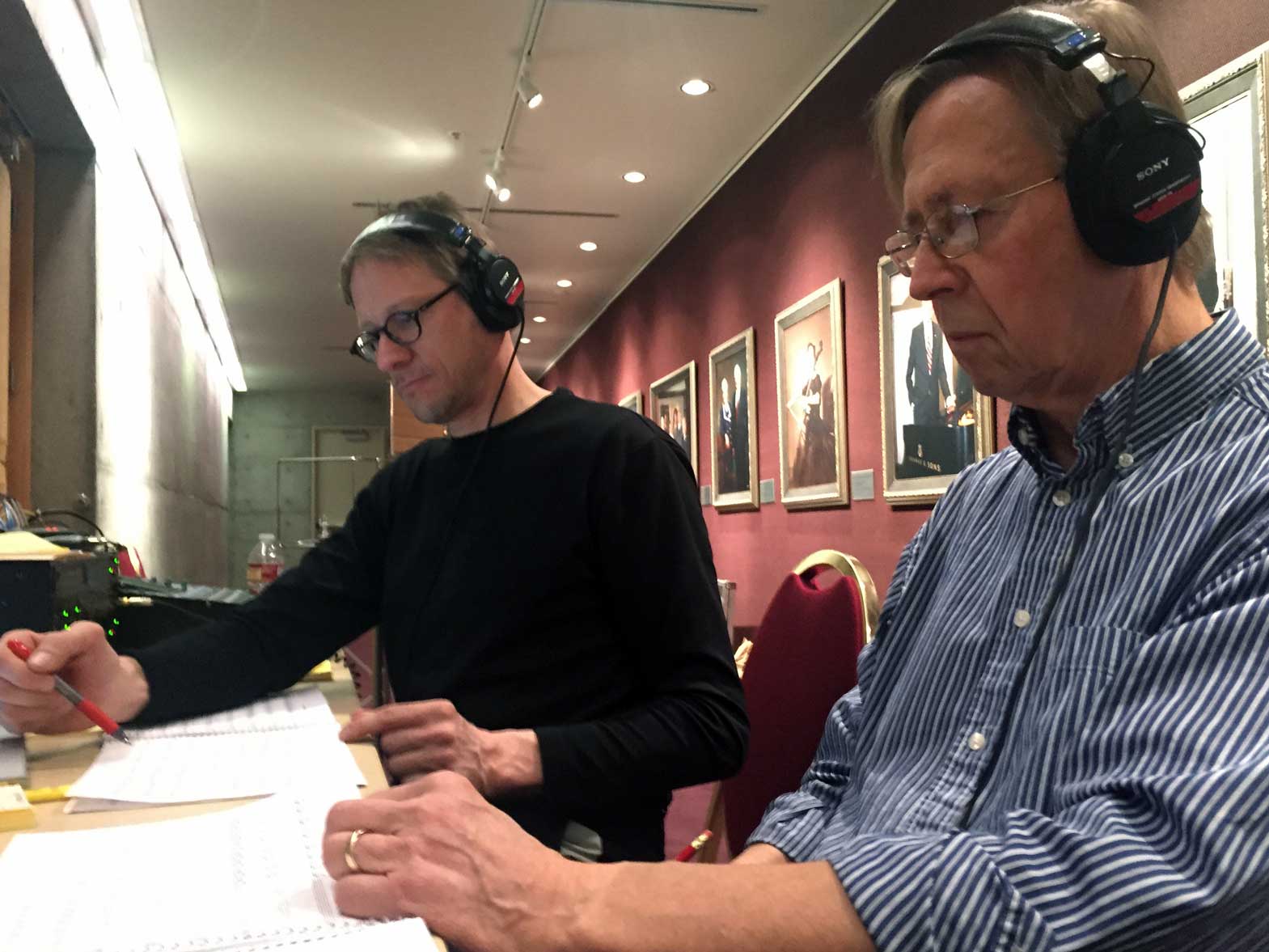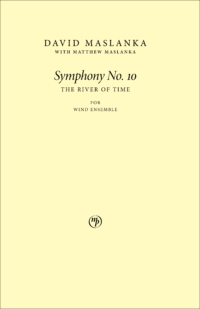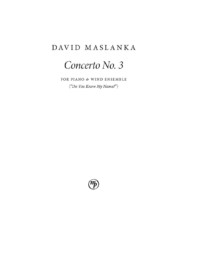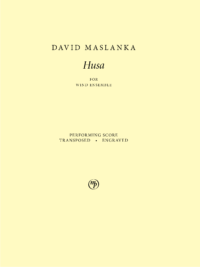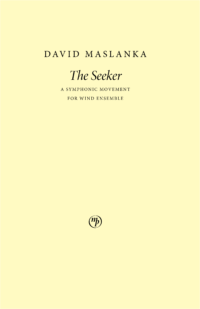Project Description
Wind Ensemble
1994
12 min
Grade 4
Listen Now
Illinois State University Wind Symphony, Stephen Steele, cond.
On the album Unending Stream of Life (2009)
Instrumentation
Picc Fl-3 Ob-2 BbCl-3 BCl CACl Bsn-2 ASx-2 TSx BSx | Hn-4 Tpt-3 Tbn-2 Euph Tuba DB | Pno Timp Perc-4
- Piccolo
- Flute (3)
- Oboe (2)
- Clarinet in B♭ (3)
- Bass Clarinet in B♭
- Contraalto Clarinet in E♭
- Bassoon (2)
- Alto Saxophone (2)
- Tenor Saxophone
- Baritone Saxophone
- Horn in F (4)
- Trumpet in B♭ (3)
- Trombone (2)
- Euphonium
- Tuba
- Double Bass
- Piano
- Timpani
- Required Percussion (4 parts)
- Vibraphone
- Xylophone
- Maraca (2)
- Crotale (G#) (or Orch. Bells)
- Snare Drum
- Tom Toms (3)
- Crash Cymbals
- Brake Drum (2)
- Tambourine
- Gong (1 med, 1 lg)
- Tam Tam (lg)
- Marimba
- Sleigh Bells
- Bass Drum (2)
- Suspended Cymbals (3) (1 sm, 1 med, 1 lg)
- Ratchet
- Anvil (2) (1 sm, 1 lg)
Commissioned by
Laudamus Te was written for and dedicated to the Mount St. Charles Academy Symphonic Band (Woonsocket, RI), Marc Blanchette, director.
The commission was supported by a grant from the Christa McAuliffe Fellowship Program, a federally-funded program providing grants to outstanding teachers to enable and encourage them to continue their education, develop innovative programs, consult with or assist local education agencies, and engage in other educational activities that will enhance the knowledge and skills of teachers and the education of elementary and/or secondary students. The fellowships honor the late Sharon Christa McAuliffe, the teacher who served as an astronaut on the Challenger Space Shuttle in January 1986.
Program Note
The words “laudamus te” (we praise you) are from the Gloria of the Latin Mass. The idea has been brought forward by many over time (St. Francis and St. Ignatius Loyola are two) that the true function of the human race is to sing praise. Anyone who has reflected at all on the miracle of the universe – the enormity of it, the essential mystery of it, the paradoxes bound up in it – has no choice but to be astounded. The thought instantly lifts one beyond the rounds of daily life and into the words and music of praise.
Living has in it not only epiphany and joy, but depression, darkness, and awareness of death. Awareness of death reveals how tenuous life is, and through this how miraculous and precious it is. Dark, seemingly negative awarenesses are not only not reasons for denial or nihilism, but offer the possibility, even the necessity, of singing praise through darkness. Laudamus Te/em> is such a piece; in this music the voice of praise arises out of Darkness.
Program note by David Maslanka
Further Reading
David Maslanka: Works for Younger Wind Ensembles
Here are more than twenty works for wind ensemble, arranged in approximate ascending order of difficulty, with commentary by David Maslanka
Recording the Wind Ensemble Music of David Maslanka
Mark Morette of Mark Custom Recording shares his extensive experience in recording wind ensembles.
